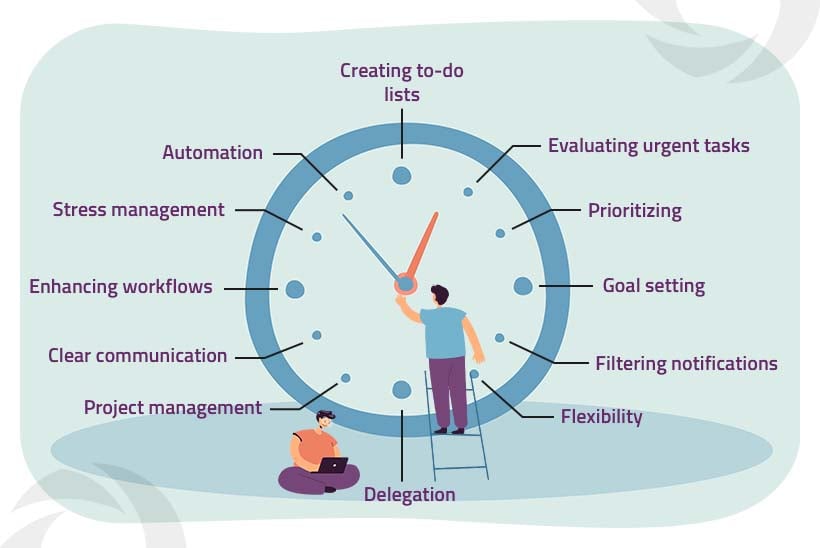As the demands of our modern lives continue to increase, finding the elusive work-life balance becomes more crucial than ever. We often find ourselves caught in a never-ending cycle of deadlines, meetings, and obligations, struggling to find time for ourselves, our families, and our passions. In this fast-paced world, time management emerges as a vital tool that can help us navigate through this chaos and achieve a harmonious balance between work and personal life.
The concept of work-life balance has been on everyone’s minds for years now. People are increasingly prioritizing the need to maintain a healthy equilibrium between their career aspirations and personal fulfillment. However, despite our best intentions, it can feel overwhelming to create that perfect balance. This is where effective time management practices come into play, acting as a guiding force to help us regain control of our lives.
Personally, time management has played a pivotal role in my journey towards achieving work-life balance. I used to find myself constantly juggling multiple projects, working long hours, and sacrificing my personal life in the process. But one day, I realized that in order to be truly successful and fulfilled, I needed to bring some order into the chaos.
The first step I took was recognizing that I couldn’t do it all, and that it was okay to ask for help. I started by evaluating my priorities and identifying tasks that could be delegated or outsourced. By entrusting certain responsibilities to others, I was able to free up valuable time and energy for more important endeavors.
Another fundamental aspect of effective time management is setting clear goals and priorities. I began to take a more intentional approach to my work and personal life, ensuring that I aligned my actions with my values and long-term aspirations. This involved making a conscious effort to prioritize tasks that aligned with my overall goals, while learning to say no to activities that didn’t contribute to my well-being or success.
A crucial aspect of time management is understanding the difference between being busy and being productive. I used to wear my busyness as a badge of honor, but I soon realized that being constantly busy didn’t necessarily equate to being productive. By adopting strategies such as the Pomodoro Technique, where I break my work into focused sprints with regular breaks, I was able to optimize my productivity and maintain my energy levels throughout the day. This approach helped me accomplish more in less time while also allowing me to take moments for self-care and relaxation.
Moreover, effective time management involves practicing mindfulness and being fully present in whatever task or activity we are engaged in. It’s easy to get caught up in the rush of daily life, constantly thinking about the next task or deadline. However, by cultivating a sense of mindfulness and staying fully present, we can derive greater fulfillment from our work and personal endeavors.
In my own experience, allocating time for self-care and personal growth has been instrumental in achieving work-life balance. I realized that taking care of myself physically, mentally, and emotionally not only made me a better employee but also enriched my personal life. I started incorporating activities such as exercise, meditation, and pursuing hobbies into my daily routine. This investment in myself allowed me to recharge, reduce stress levels, and approach both work and personal life with renewed energy and focus.
Lastly, effective time management involves learning how to set boundaries and protect our personal time. It’s essential to establish clear boundaries between work and personal life, avoiding the temptation to constantly check emails or respond to work-related tasks during our personal time. By setting aside specific hours for work and dedicating equal importance to relaxation and leisure, we can enjoy a greater sense of balance and satisfaction.
In conclusion, time management plays an integral role in achieving work-life balance. By reevaluating our priorities, setting clear goals, being mindful of our actions, and investing in self-care, we can reclaim control over our lives and create a harmonious equilibrium between our professional and personal pursuits. Through personal experience, I have discovered that effective time management not only enhances our productivity and success but also nurtures our overall well-being and fulfillment. So let us prioritize time management as an essential tool on our journey towards achieving the elusive work-life balance we all crave.
